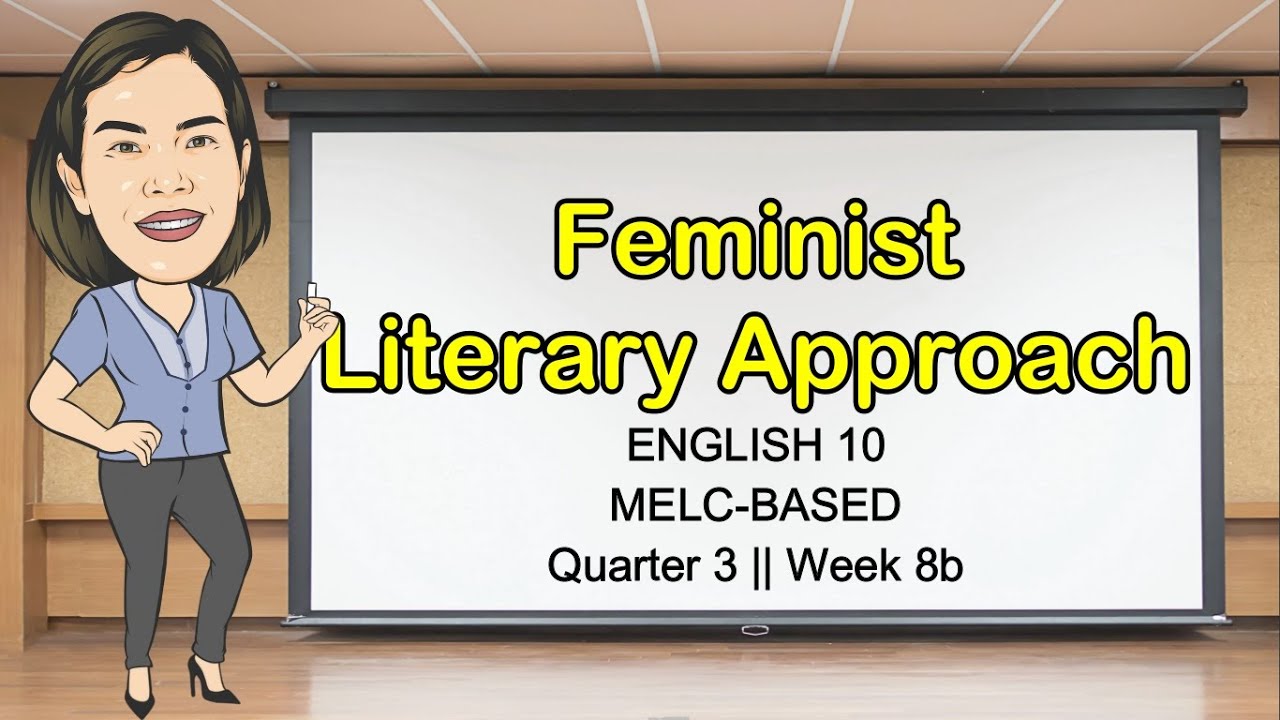Literary Criticism through the Marxist Lens | Grade 10
Summary
TLDRThis lesson introduces Marxism as a literary approach, focusing on its key principles, including the analysis of social inequality, class struggle, and oppression in literature. Viewers are encouraged to examine texts through a Marxist lens, exploring social classes, conflicts, and the author's message. The lesson uses examples like the movie Titanic and the play 'The Zoo Story' to illustrate how Marxist theory is applied in literature. The video concludes with an exercise to analyze another literary work, 'Boule de Suif,' emphasizing the impact of social inequality on society and individuals.
Takeaways
- 😀 Marxism is a cultural theory that focuses on social, economic, and political ideas aimed at interpreting and changing the world.
- 😀 Karl Marx, the proponent of Marxism, observed social inequality during industrialization and believed it led to class divisions.
- 😀 The Marxist literary approach examines how literature reflects social classes, oppression, and conflicts between them.
- 😀 In Marxist literary criticism, the social classes, characteristics of these classes, their interactions, and conflicts are key areas of focus.
- 😀 Marxist critics also look at how authors portray social issues like oppression and inequality through characters and storylines.
- 😀 The 1997 movie *Titanic* is a notable example of Marxism in literature, showcasing class struggles and social inequality.
- 😀 The Marxist lens can reveal the differences between social classes in literature, such as the contrast between rich and poor characters.
- 😀 Edward Albee’s *The Zoo Story* illustrates Marxist themes by showing a difference in social status between characters Peter and Jerry.
- 😀 *The Zoo Story* uses the interactions between the characters to highlight themes of social oppression and class conflict.
- 😀 The lesson emphasizes that understanding Marxism can provide a new perspective on literature, helping readers identify social dynamics in texts.
Q & A
What is the focus of Marxist literary criticism?
-Marxist literary criticism focuses on analyzing literature in relation to social classes, conflicts, oppression, and how economic and political systems influence society and literature.
How did Karl Marx contribute to Marxism?
-Karl Marx developed a set of socio-economic and political ideas that emphasized the role of class struggles, the division of labor, and the inequalities inherent in capitalist societies, all of which are central to Marxist theory and its application in literary criticism.
Why is the 'Titanic' movie used as an example in the lesson?
-The 'Titanic' movie is used as an example of Marxism in literature because it highlights class struggle, showing the stark contrast between first-class and third-class passengers, and depicting the oppressive social hierarchies and conflicts between these classes.
What are the key elements to focus on in a Marxist literary analysis?
-In a Marxist literary analysis, focus on identifying the social classes in the story, how these classes interact, the conflicts that arise from class differences, the author's message about social issues, and the author's background, including their views on society, economy, and politics.
How does 'The Zoo Story' by Edward Albee demonstrate Marxist themes?
-'The Zoo Story' demonstrates Marxist themes through the interaction between the characters Peter and Jerry, showcasing their social class differences. Peter is initially uncomfortable and reluctant to engage with Jerry, highlighting the social divide between them and the way class affects their behavior and perceptions.
What role does the author's background play in a Marxist literary analysis?
-The author's background is crucial in a Marxist literary analysis because their views on economy, politics, and society can influence the themes, messages, and characters in the literary work, providing insight into the social issues being addressed.
What is the significance of the setting in Marxist literary criticism?
-The setting, including the time period, culture, and socio-political context in which a literary piece was written, is significant in Marxist literary criticism because it can provide context for the social and economic conditions reflected in the story and the author's perspective on class struggle.
Why does the lesson emphasize the analysis of social classes in literature?
-The lesson emphasizes the analysis of social classes because Marxism views literature as a reflection of social structures, where class inequalities and conflicts are central to understanding both the narrative and its critique of society.
What is the purpose of the activities in the lesson?
-The activities in the lesson, such as pre-tests, comprehension checks, and analysis exercises, are designed to help students actively engage with the Marxist literary approach, test their understanding of the theory, and apply it to different literary texts.
How does the lesson encourage students to reflect on inequality in society?
-The lesson encourages students to reflect on inequality in society by prompting them to consider the impact of social class disparities in literature and real life, culminating in a reflective activity where students express their realizations about these issues.
Outlines

This section is available to paid users only. Please upgrade to access this part.
Upgrade NowMindmap

This section is available to paid users only. Please upgrade to access this part.
Upgrade NowKeywords

This section is available to paid users only. Please upgrade to access this part.
Upgrade NowHighlights

This section is available to paid users only. Please upgrade to access this part.
Upgrade NowTranscripts

This section is available to paid users only. Please upgrade to access this part.
Upgrade NowBrowse More Related Video

Meg-5, What is Marxism? Important Ideas, concept,Literary Theory and Criticism, #successmaker #ignou

Seri Teori Sastra: Marxist Literary Criticism (Teori Marxisme)

Methodology: An Introduction to Literary Theory

HISTORICAL LITERARY APPROACH + EXAMPLE || QUARTER 3 WEEK 8 || MELC-Based || Aizie Dumuk

FEMINIST LITERARY APPROACH + EXAMPLE || QUARTER 3 WEEK 8 || English10 || MELC-Based || Aizie Dumuk

AN INTRODUCTION TO LITERARY THEORY: What is Literary Theory?
5.0 / 5 (0 votes)